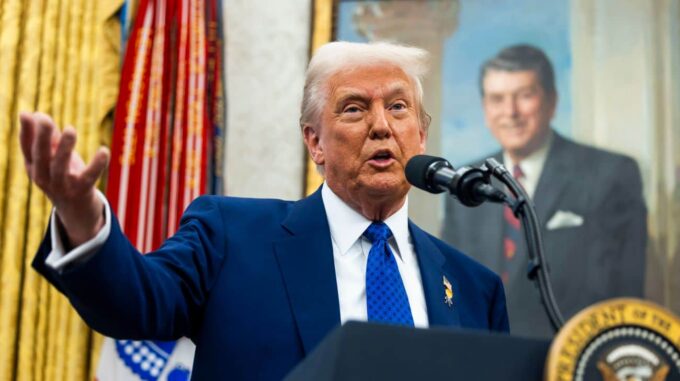According to Bloomberg, the leaders of the G7 countries have faced difficulties convincing U

S. President Donald Trump to intensify sanctions pressure on the Russian Federation. Despite prolonged diplomatic discussions ahead of the summit, the American leader did not agree to tighten restrictive measures against Moscow, disappointing his allies from other leading nations of the world. Sources familiar with the matter have reported that Trump repeatedly urged Vladimir Putin to agree to cease military actions in Ukraine and also warned about the possible implementation of new sanctions in response to the escalation of the conflict. However, no decisive action was taken by the American leadership. It turned out that during a closed-door dinner of the leaders at the summit in Canada, Trump expressed doubts about the advisability of additional sanctions, noting that their introduction would entail significant economic costs for the United States. This raises questions about the unity of the diplomatic front and casts doubt on the true intentions of the American leadership regarding future steps concerning Russia. European countries, according to Bloomberg analysts, are beginning to lose trust in Trump's intentions to further escalate pressure on the Kremlin. They increasingly realize that the situation is becoming more complex and are trying to buy time to maintain diplomatic balance. At the same time, Brussels and other European capitals continue cooperating with the U.S., trying not to provoke Washington, but they are also actively seeking opportunities to assist Ukraine during this difficult period. They aim to preserve allied relations while demonstrating a cautious interest in avoiding further escalation of the conflict to prevent repeating past mistakes. Despite internal disagreements and dilemmas, the G7 leaders publicly stated that the discussion on sanctions with Trump was constructive and concluded on a positive note. It is expected that in the upcoming official statement to be issued by Canadian Prime Minister Justin Trudeau, emphasis will be placed on Ukraine’s readiness to cease fire, while Russia remains a source of tensions. The document underscores the need to intensify pressure through sanctions specifically against Moscow, calling for international unity in support of Ukraine and against Russian aggression. This indicates that despite internal discord, the international community aims to maintain consensus on strategically supporting Ukrainian sovereignty and territorial integrity.

